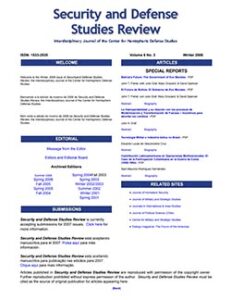This article deals with the significant role technological innovations play in the strengthening of Brazil's military capabilities, based on the qualitative nature of modern warfare, and any security issues that the nation faces in early 21st Century. Thus, it reviews the phenomenon that many authors call the RAM (Revolution in Military Affairs) of the nineties, resulting from the IT process of the combat means. But any political implications are more relevant than any mere operational issues of this RAM, to the extent that it provides a cost reduction for the nations that are at the forefront of the interventionism as an instrument of international action. However, it has also generated vulnerabilities, and improved the involvement of non-governmental protagonists in armed conflicts. Based on these verifications, the article seeks to show the consequences of this new geo-strategic scheme for Brazil and, using any plausible threats for the country as criteria, it intends to discriminate any items of the present RAM that need to be incorporated into the Armed Forces structure, based on the premise that any economic reactivation of the national warfare industry is a required condition to channel any significant investment to P&D military efforts. Thus, the article seeks to find out which are the variables that interfere with the problem to design a strategy to facilitate, with any limited resources available, an adequate solution to sort any hurdles for streamlining the Armed Forces.

